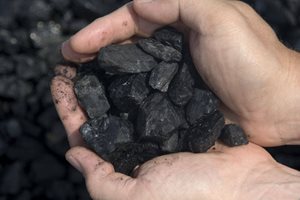The revelation that the global oil and gas company Shell lobbied the World Bank against funding new coal power stations is a stark indication of the increasing political isolation of the global coal industry. The coal industry is now so isolated that its corporate competitors such as Shell feel sufficiently emboldened to give the already weakened industry a big shove along the gang plank reserved for undesirable industries.
“We found out most coal plants get their funding started by using the bilateral funding agencies, such as the World Bank, so we were talking to them about the impact their policies have on the energy mix of the world,” Shell’s head of gas, Maarten Wetselaar told The Australian last week.
In July the World Bank announced a new policy restricting finance for coal-fired power stations to the poorest countries and only where there are “no feasible alternatives”. The policy leaves the bank with some, but not a lot, of wiggle room to fund new coal-related projects.
It is impossible to know what impact Shell’s lobbying had. Perhaps it had none. Or perhaps Shell had simply realised which way the wind was blowing and was trying to ensure that the World Bank didn’t take climate protection so seriously that gas-fired plants were caught up in a policy aimed at restricting new fossil fuel power stations. Or perhaps it is simply Shell trying to buff its tarnished corporate social responsibility credentials.
An anonymous spokesman for the Minerals Council of Australia – the lobby group which represents major mining companies such as Rio Tinto, BHP Billiton, Anglo American and Peabody Energy – complained to The Australian that “we should be working together to meet the world’s energy needs”. But clearly they aren’t.
Shell’s lobbying is self-interested for sure. As the deployment of utility scale renewables grows rapidly on the supply side and efficiency and distributed generation bites chunks out on the demand side, the gas industry becomes ever more determined to elbow the coal industry out of the way in whatever space is left for burning fossil fuels.
The real impact of Shell’s lobbying is to leave Big Coal even more politically isolated than before and morale of the industry’s true believers lower.
It had already been a bad year for Big Coal before the World Bank unveiled its new policy and Shell’s lobbying became public. China, a cornerstone market for the global coal market, has launched moves to curtail coal’s role due to its contribution to air pollution. Coal plants in industry have been embroiled in corruption scandals and financial woes. Around the world opposition to the health costs of coal – whether from its transport in uncovered rail wagons or air and water pollution – is changing the public understanding of the real costs of coal.
In many developed countries the era on new coal plants is ending and the retirement of old plants accelerating. To add insult to injury, a bevy of financial analysts are now openly debating how soon demand for thermal coal will peak and then start to decline. The cumulative effect of these rapid shifts in the public mood is to create great uncertainty about future levels of demand, suppress prices and cruel many of Big Coal’s dreams of huge new projects.
The rapidly souring mood towards coal is a profound shift from just a year ago. All Shell has done is given Big Coal another nudge on top of those delivered by others. While Big Coal’s lobbyists are undoubtedly feeling lonelier than ever, the one limited consolation they have is that the tobacco and asbestos industries are ahead of them on the gang plank.
Bob Burton is co-author with Guy Pearse and David McKnight of Big Coal: Australia’s dirtiest habit (NewSouth Books, August 2013). He is also a Contributing Editor of CoalSwarm, a coal wiki and a director of The Sunrise Project, an Australian group promoting a renewable energy economy. You can follow his Twitter feed here.








